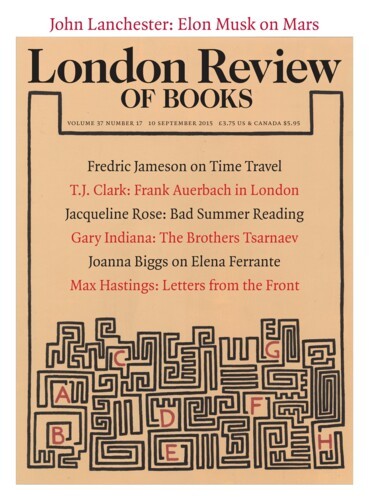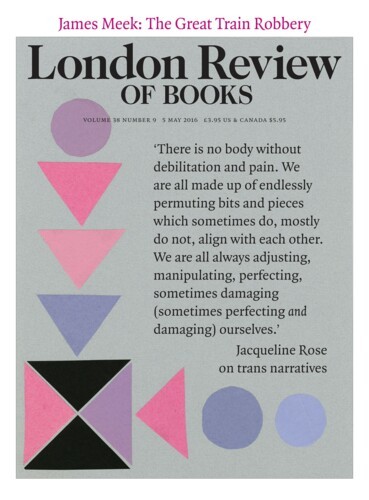When Vittorio De Sica was looking for funding to make the film that became Bicycle Thieves, the story goes, David O. Selznick offered to put up the money on condition that the lead would be played by Cary Grant. Film historians tend to take this as an instance of Hollywood crassness, though maybe it should be classed as one of cinema’s lost opportunities.
Robert Hanks
Robert Hanks is considering his options.
Oh! Mr Porter
9 September 2015
On Putting Things Off
Robert Hanks, 10 September 2015
When I hear other people talking about procrastination, I find myself getting proprietorial: surely their fleeting pauses are as nothing to mine. Procrastination is the main way I express anxiety and depression, if I can use these medicalised, dignifying terms. It’s franker to say that I put things off because much of the time I’m frightened and sad (too frightened and sad for...
Neoteny
4 May 2016
Fascism in fiction has been in vogue for a while now: the television versions of The Handmaid’s Tale and The Man in the High Castle, Penguin’s republication (on the day of Trump’s inauguration) of Sinclair Lewis’s It Can’t Happen Here, people scurrying to the bookshelves to note all the pre-echoes of Steve Bannon’s politics in Philip Roth’s The Plot against America. I don’t know what emotional need these might-have-beens and could-it-yet-bes serve, unless it’s a version of ferreting around in Nostradamus for strings of words that might be contorted into a prediction of something that’s just happened: things feel more manageable when you can tell yourself that someone saw this coming.
Podcasts & Videos
On Putting Things Off
Robert Hanks
Robert Hanks on the pleasures and pains of putting things off.
Read anywhere with the London Review of Books app, available now from the App Store for Apple devices, Google Play for Android devices and Amazon for your Kindle Fire.
Sign up to our newsletter
For highlights from the latest issue, our archive and the blog, as well as news, events and exclusive promotions.



